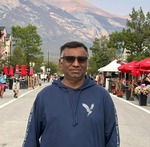A December election might have been preferable, but BNP has little reason to sulk over a four-month delay–here’s why
-6843dddf78c3c.png)
Dr. Muhammad Yunus’s announcement–dropping the national election date for early April just a day before Eid al-Adha–sent ripples far beyond the corridors of power.
It hijacked conversations from the drawing rooms of Dhaka to Eid dinners in Jackson Heights, East London or in Danforth Avenue. This was more than a storm in a teacup; rather it stirred vigorous debates around qurbani meat curries and kebabs.
Upon the election timeframe declaration, the Bangladesh Nationalist Party (BNP), the country’s most significant political force now, has made no secret of its discontent.
For months, it had pushed for elections in the traditional December window–a time more conducive to voter turnout with school holidays, and favorable weather. Their objections are strategic, and frankly, they’re reasonable.
But here’s the inconvenient truth: the BNP has little to lose from a delayed election, even if the delay stretches into late 2026 or early 2027.
Why? Because politics in Bangladesh isn’t only decided by the person in the prime minister’s seat or the voices in the cabinet room. The real machinery of power–99% of it–operates outside of Dhaka’s political theater.
It lives in the army barracks, the police stations, the courtrooms, the union councils, the local markets, and even the tempo stands.
This decentralized state apparatus cannot be left to vacuum. For years, it was under the tight grip of the Awami League. But when that grip loosened after August 5, BNP operatives swiftly stepped into the void.
Not because the Yunus administration invited them in, but because they never really left.
Despite losing power nearly two decades ago, the BNP refused to be erased. It persisted–doggedly and often crudely–in every ferry terminal, village outpost, and market stall.
The party embedded itself so deeply in the rural and municipal matrix that when the AL retreated, there was already a familiar face waiting to take charge.
And let's be honest: if the BNP hadn’t filled that void, someone else would have. And they would do that with weapons and turf wars. Warlords, gangs, syndicates–power, after all, abhors a vacuum.
So yes, you can argue about election dates and procedural fairness all you want. But the deeper story here is that power in Bangladesh doesn’t flow solely through the ballot box.
It seeps through the cracks of everyday governance–and right now, much of that space belongs, informally but effectively, to the BNP.
-6843dd789aad6.png)
The power paradox
This is the paradox of power in Bangladesh today: the more ground the BNP regains in the informal machinery of the state, the more criticism it attracts.
The very “dokhols”--territorial takeovers–that allowed it to reclaim influence now make it a convenient scapegoat. The BNP, in a strange twist of political irony, is becoming a victim of its own success.
Critics, especially the growing tribe of "Yunus fans who are pejoratively now called Yunusexulas," yearn for a Bangladesh that looks and functions like a Western liberal democracy–Canadian politeness, American institutions, Scandinavian efficiency.
It’s an attractive fantasy. I want that too. But let’s be honest: dreaming a society into transformation is not policy, and it’s certainly not strategy.
Transitions don’t happen overnight. They take decades–generations even. Bangladesh had two windows for real structural change. The first came after Ziaur Rahman’s assassination, when President Abdus Sattar tried to carry the torch of civilian rule.
That hope was swiftly crushed under General Hussain Mohammad Ershad’s boots. The second came in 1991, when the BNP returned to power through democratic elections and tried–perhaps too sincerely–to govern with a light hand.
That openness was exploited. The opposition, a toxic AL-Jamaat alliance at the time, took advantage of BNP’s restraint and played scorched-earth politics.
So let’s confront the uncomfortable truth: the BNP, for all its flaws, is the de facto ruling party today–without the official title. That’s a strategic advantage rather than a liability.
Let Yunus and his technocratic circle field the public outrage over inflation, fuel shortages, and rolling blackouts. The BNP doesn’t need to rush into power when they’re already pulling so many of the invisible strings.
The moment Tarique Rahman steps formally into office, the story changes. The spotlight shifts. Accountability returns. For now, Dr Yunus is absorbing all the heat–while the BNP essentially operates behind the curtain, shaping the supply chain, the streets, the unions, the public mood.
Why trade that leverage for a title so quickly?
The smartest move for the BNP right now? Probably agree to the election date. Let the status quo simmer. Keep the power, dodge the blame for now. Wait for things to become a bit steady. Then come to power with election and govern effectively,
In Bangladesh, that’s what real political genius looks like.
—
Rumi Ahmed is a Texas based Physician and Political analyst

